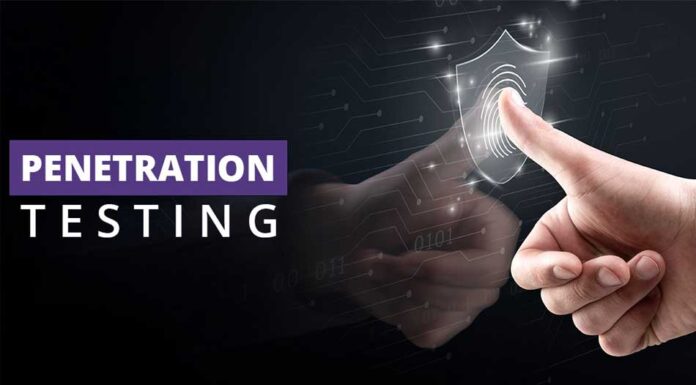Table of Contents
Blockchain technology remains the matter of the moment, and gains increased attention as the world unveils its yet-to-be-discovered advantages in industries ranging from tech to finance. After having been developed to create the first cryptocurrency, Bitcoin, on top of it, the complex technology soon and inevitably gained traction among tech-savvy individuals. In layman’s terms, it’s the catalyst that started everything, and without it, the commonplace practice of monitoring the Bitcoin price wouldn’t exist today.
Blockchain has, to date, successfully revolutionized several industries, from tourism to healthcare and transportation. Clearly, businesses lagging in the tech race risk remaining behind while quick-on-the-uptake adopters gain the early bird’s advantage. Furthermore, outgrowing the technology employed and sticking with outdated solutions that no longer support their long-term strategy are further impediments holding many businesses back.
Transparency, security, interoperability, and increased output are goals that every business seeks. Blockchain can take SaaS (software as a service) further, enhancing the storage, management, access, and exchange of sensitive data and reducing the operations’ costs.
Blockchain is under continuous development and is on its way to becoming omnipresent. Businesses must, therefore, pack with patience and reconsider their investment strategies so that this portion will be directed to introducing blockchain solutions that will ultimately pay off.
Blockchain as a potential solution
When debating whether blockchain is the right solution in a sea filled with technological advancements, one may wonder why blockchain should be the chosen one. In light of its significance, it has made transactions on the network secure and inaccessible by any third party, reducing risks inherent in the traditional financial system, like fraud and corruption or exaggerated fees for processing transactions by mediators. It is a distributed ledger controlled by independent nodes, which makes it virtually impossible to corrupt or jeopardize the network. Any interested party can join the network and make monetary transactions without incurring third-party involvement costs. The key elements of this ledger are decentralization, immutability, security, and consensus-driven operations.
When it comes to software solutions, development is inevitable. It unfolds in synchrony with other technological advancements, like blockchain. The latter has risen tremendously over the last few years, given the capacity enabled to secure, handle, and monitor virtual monetary transactions. Thus, SaaS can take advantage of a transparent way to hold bunches of data at lower costs.
An example of a blockchain-benefitted SaaS company
One example where blockchain can find a valuable place in a SaaS company is when it needs a credit line. Smart contracts for financial operations are invaluable solutions since they remove the need for third parties, are immutable and transparent to anyone, and modifications can’t be conducted once the contract is closed; only edits and additions are permitted. A SaaS company needing credit lines can opt to use safe contracts with the financial service providers adopting this method to communicate their annual revenue, assess their eligibility, and receive a credit line in a matter of minutes.
Why are there such high bets on blockchain in SaaS companies?
Much like in any other industry that witnessed a tremendous transformation thanks to blockchain technology, similar anticipations also exist for the SaaS sector. Companies can benefit from networks that offer transparency to users and the staff behind them, where transactions can’t be modified, corrupted, or interfered with, and that rank highly in terms of security. Blockchain provides a transparent and secure method to manage large amounts of data and make them easier to access by interested parties without resorting to banks or other financial service providers to handle data scrutiny. Transactions between users are easily secured and recorded. For this reason, different industries have already implemented blockchain solutions into their operations.
In the healthcare sector, for instance, blockchain networks help parties store and exchange data about patients with different facilities, like pharmacy firms or diagnostic labs. This enables higher security and performance since interference is considerably reduced. Another helpful example is that of supply chains, where blockchain solutions help companies track the whole journey of a product, starting from the plant to the recipient. Since transactions are time-stamped and constantly updated, a product can be traced down at any moment.
How can blockchain benefit SaaS?
Among the wide range of advantages that blockchain can inject into SaaS companies is heightened security. Given that a decentralized network, free from outside involvement, hosts the software, it becomes tamper-proof, eliminating any single point of vulnerability that hackers could exploit. Furthermore, blockchain relies on consensus mechanisms and hashes to maintain the integrity of its entrusted data.
Another benefit is transparency. Users can easily monitor and assess the information they share, streamlining the entire process as they no longer require external assistance for their operations.
SaaS and blockchain can allow users to employ more secure, transparent, and efficient cloud-based software. The key resides in the former concept: enterprises can introduce and exchange sensitive data, knowing they won’t be exposed to the inherent risks of conventional SaaS platforms.
Of course, there are also obstacles to overcome
Merging blockchain technology with SaaS solutions may be easier said than done for some businesses and organizations. For what it’s worth, such an initiative can be budget-straining for many establishments, which find themselves experiencing difficulty dividing the budget among various areas.
On the flip side, the cloud computing area, which plays a crucial role in virtually every company worldwide due to its capacity for data storage and backup, faces a challenge regarding implementing blockchain technology. With its ability to record and securely store data, blockchain shares features similar to those of cloud computing. However, the fusion of these two technologies encounters hurdles despite their potential to revolutionize industries.
The SaaS system depends on a broad network of participants working together, where security is a top priority. Blockchain, on the other hand, comes with the challenge of having to modify how applications are developed and utilized. This scenario may not be feasible for any company due to the intricacies involved, staff training needed, and necessary expertise. Therefore, the steps to a fusion between cloud computing and blockchain will be taken progressively.
Blockchain can potentially mitigate the security risks associated with traditional SaaS applications. However, the steps toward integrating it into SaaS companies are being taken gradually. As the tech world evolves, the journey towards implementing blockchain in these enterprises will likely become even more streamlined.















